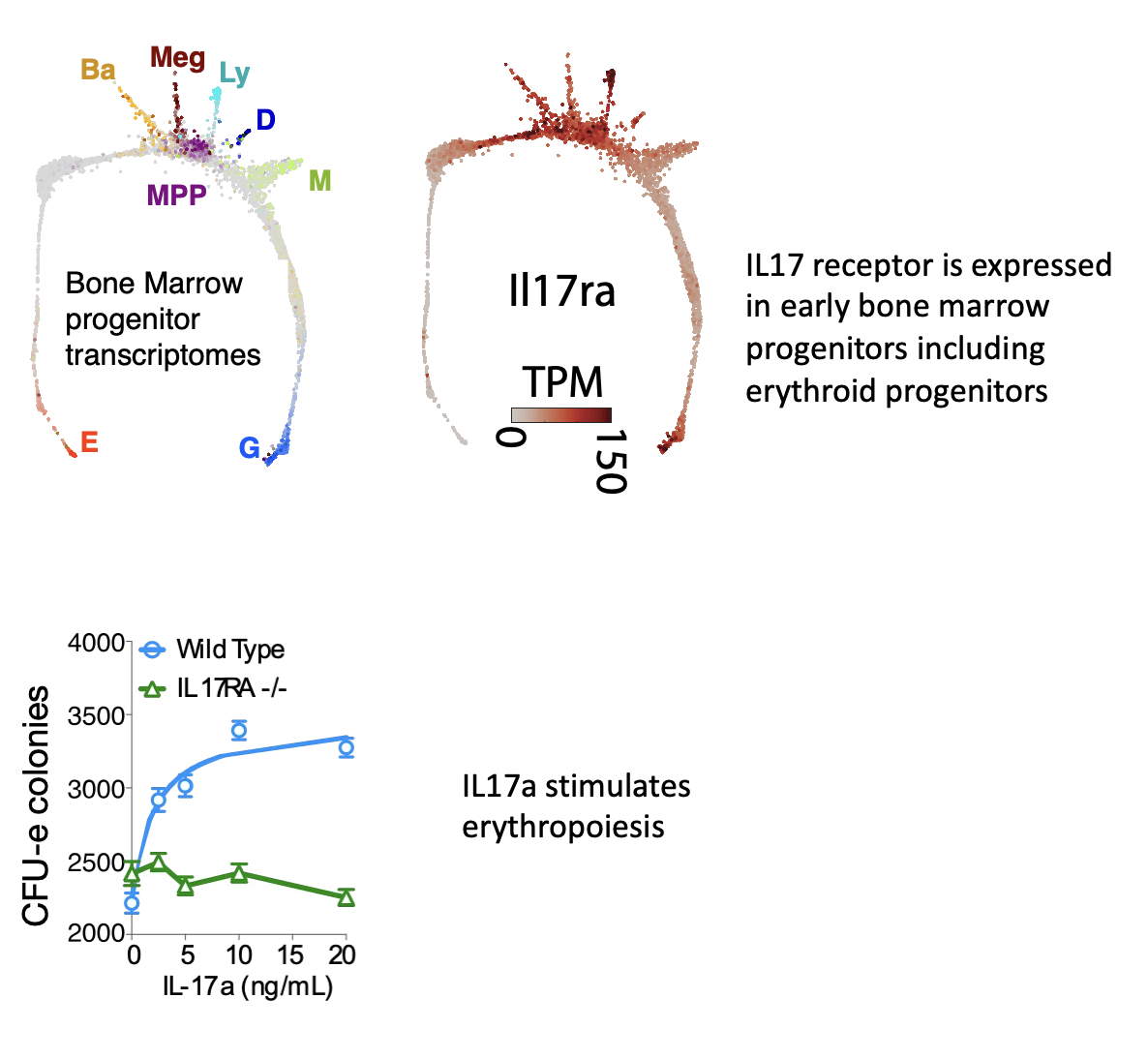New Growth Factor Regulators of Erythropoiesis
The principal and essential regulator of erythropoiesis is the hormone erythropoietin (Epo), secreted by the adult kidney in response to hypoxic stress. Epo acts principally on erythroid progenitors and precursors, to promote their survival and proliferation, increasing erythropoietic rate. Epo action is augmented by additional factors, notably glucocorticoids, that increase proliferation of earlier, Epo-insensitive hematopoietic progenitors. Clinically, Epo and glucocorticoids are the only available agents for treating anemia, leaving a therapeutic gap when they are ineffective or contraindicated.
Our recent single-cell RNA-sequencing analysis of erythropoiesis revealed a number of growth-factor receptors novel to erythropoiesis, which are expressed by progenitors on the erythroid trajectory. The ligands to some of these receptors modify erythropoietic rate, either positively or negatively, in the dish (see examples in the figure). Our current work is focusing on these, and particularly, on the role of IL17 as a novel positive regulator of erythropoiesis.

______________________________________________________________________
References:
Tusi BK, Wolock SL, Weinreb C, Hwang Y, Hidalgo D, Zilionis R, Waisman A, Huh JR, Klein AM, Socolovsky M. Population snapshots predict early haematopoietic and erythroid hierarchies. Nature. 2018 Mar 1;555(7694):54-60. doi: 10.1038/nature25741. Epub 2018 Feb 21. PMID: 29466336; PMCID: PMC5899604.
